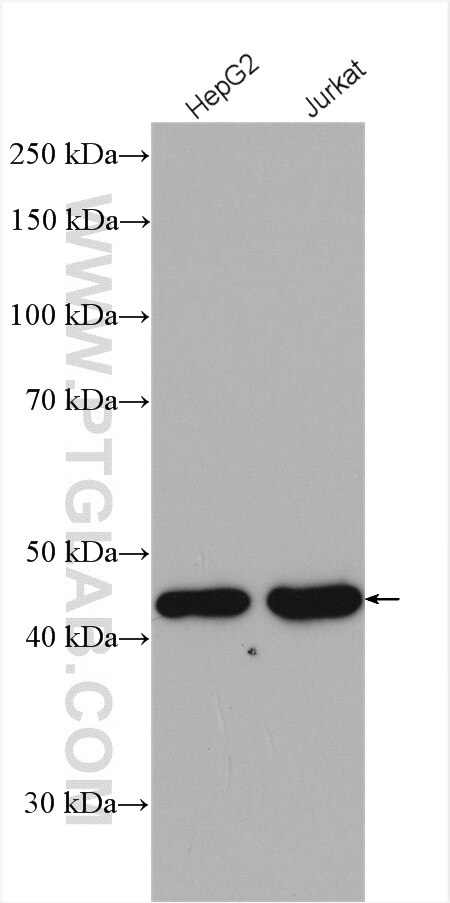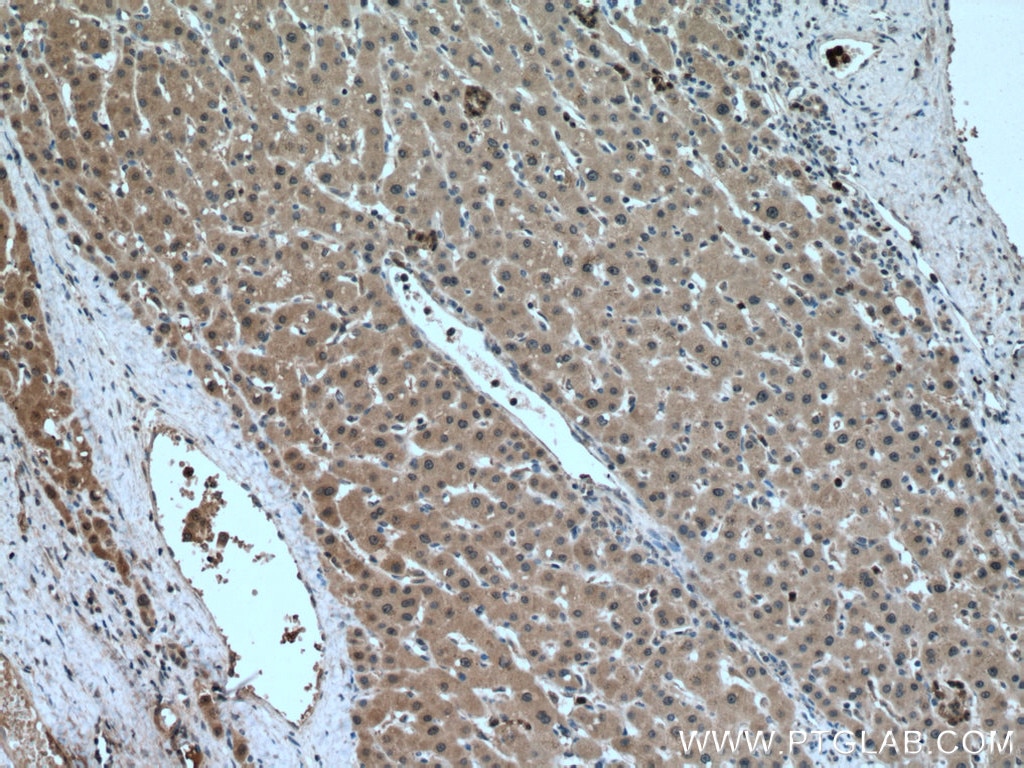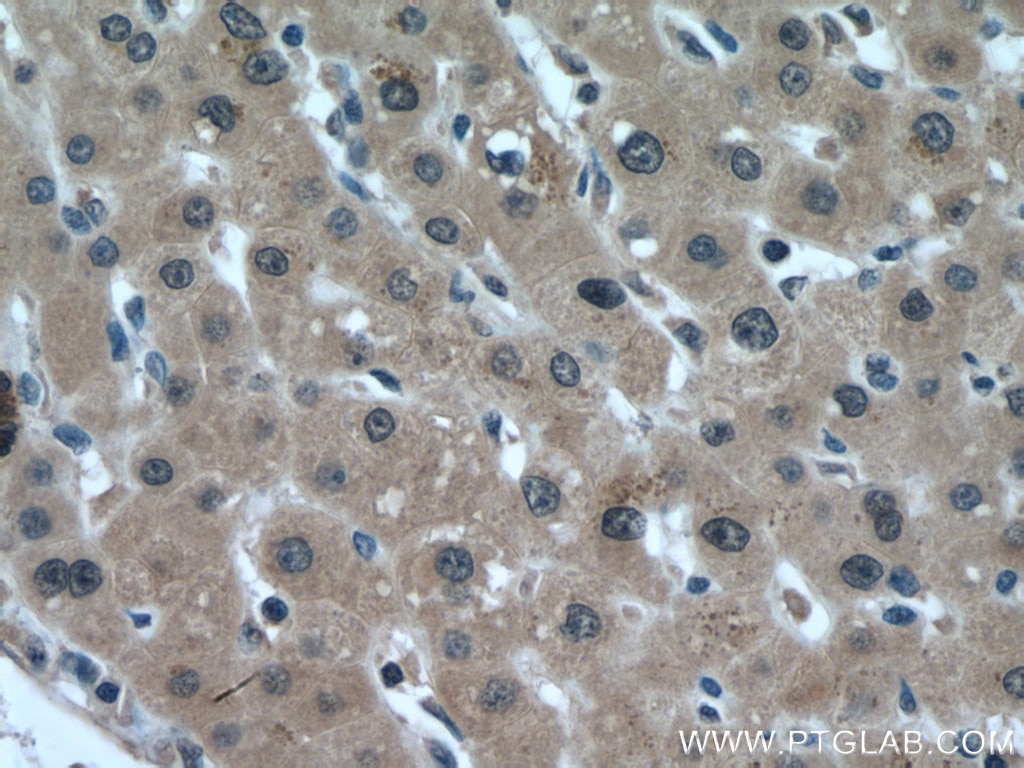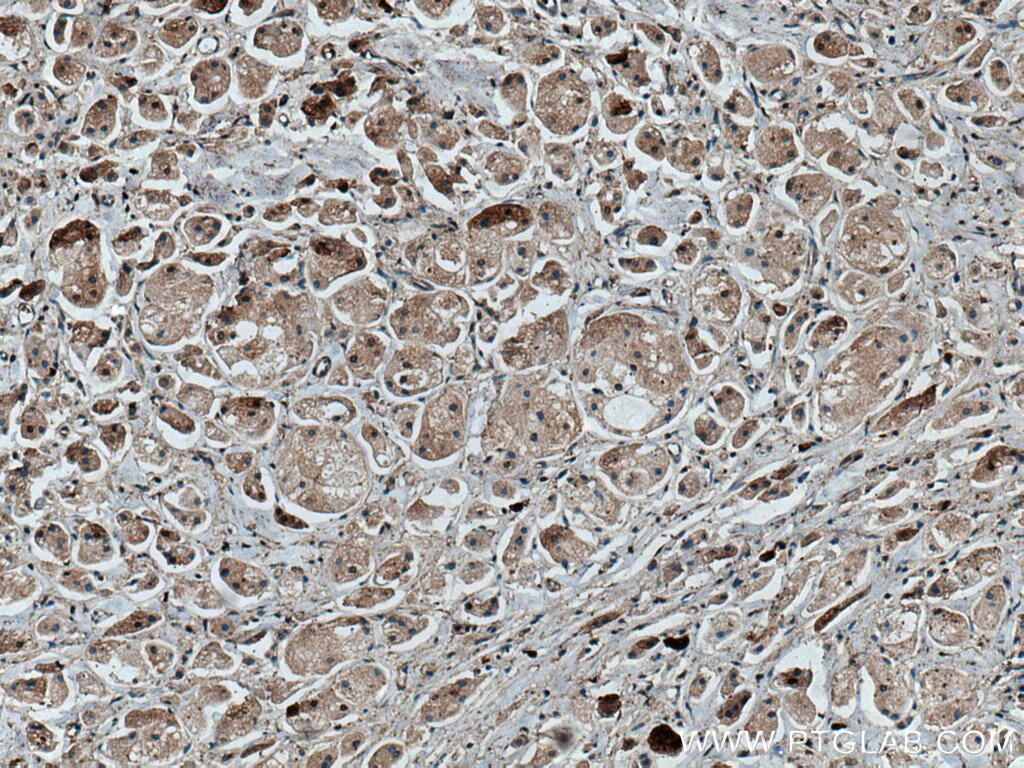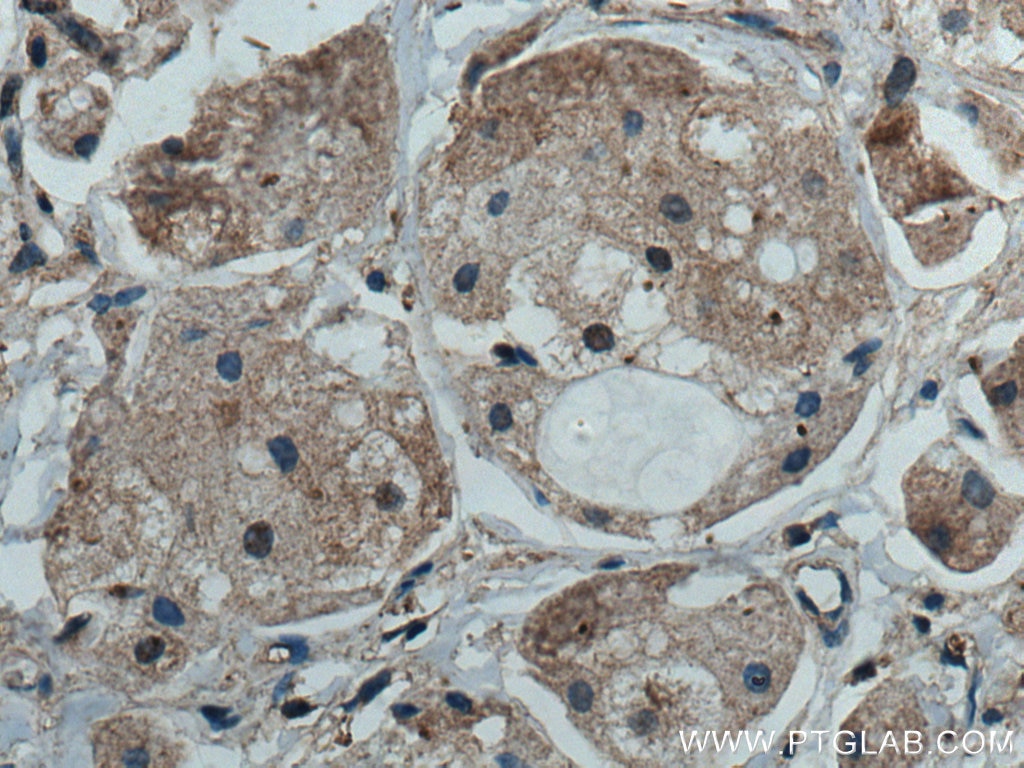- Featured Product
- KD/KO Validated
MAEA Polyklonaler Antikörper
MAEA Polyklonal Antikörper für WB, IHC, ELISA
Wirt / Isotyp
Kaninchen / IgG
Getestete Reaktivität
human und mehr (1)
Anwendung
WB, IHC, IP, ELISA
Konjugation
Unkonjugiert
Kat-Nr. : 28363-1-AP
Synonyme
Geprüfte Anwendungen
| Erfolgreiche Detektion in WB | HepG2-Zellen, Jurkat-Zellen |
| Erfolgreiche Detektion in IHC | humanes Leberkarzinomgewebe, humanes Mammakarzinomgewebe Hinweis: Antigendemaskierung mit TE-Puffer pH 9,0 empfohlen. (*) Wahlweise kann die Antigendemaskierung auch mit Citratpuffer pH 6,0 erfolgen. |
Empfohlene Verdünnung
| Anwendung | Verdünnung |
|---|---|
| Western Blot (WB) | WB : 1:1000-1:4000 |
| Immunhistochemie (IHC) | IHC : 1:50-1:500 |
| It is recommended that this reagent should be titrated in each testing system to obtain optimal results. | |
| Sample-dependent, check data in validation data gallery | |
Veröffentlichte Anwendungen
| KD/KO | See 2 publications below |
| WB | See 7 publications below |
| IHC | See 2 publications below |
| IP | See 1 publications below |
Produktinformation
28363-1-AP bindet in WB, IHC, IP, ELISA MAEA und zeigt Reaktivität mit human
| Getestete Reaktivität | human |
| In Publikationen genannte Reaktivität | human, Maus |
| Wirt / Isotyp | Kaninchen / IgG |
| Klonalität | Polyklonal |
| Typ | Antikörper |
| Immunogen | MAEA fusion protein Ag27150 |
| Vollständiger Name | macrophage erythroblast attacher |
| Berechnetes Molekulargewicht | 45 kDa |
| Beobachtetes Molekulargewicht | 45 kDa |
| GenBank-Zugangsnummer | BC001225 |
| Gene symbol | MAEA |
| Gene ID (NCBI) | 10296 |
| Konjugation | Unkonjugiert |
| Form | Liquid |
| Reinigungsmethode | Antigen-Affinitätsreinigung |
| Lagerungspuffer | PBS with 0.02% sodium azide and 50% glycerol |
| Lagerungsbedingungen | Bei -20°C lagern. Nach dem Versand ein Jahr lang stabil Aliquotieren ist bei -20oC Lagerung nicht notwendig. 20ul Größen enthalten 0,1% BSA. |
Hintergrundinformationen
MAEA(macrophage erythroblast attacher) is a core component of the CTLH E3 ubiquitin-protein ligase complex. MAEA is required for normal cell proliferation and plays a role in erythroblast enucleation during erythrocyte maturation and in the development of mature macrophages. N-terminus MAEA and full-length MAEA are mostly expressed in nuclear and can be detected at low level in the cytoplasm of some cells, while C-terminus MAEA can be detected in the cytoplasm and nucleoli within the nucleus. MAEA mediates the attachment of erythroid cell to mature macrophages which can inhibit erythroid cell apoptosis. The expression of MAEA may be associated with the type 2 diabetes mellitus.(PubMed: 28955747, 24143168, 29911972, 29911972, 30674470, 9763581).
Protokolle
| PRODUKTSPEZIFISCHE PROTOKOLLE | |
|---|---|
| WB protocol for MAEA antibody 28363-1-AP | Protokoll herunterladen |
| IHC protocol for MAEA antibody 28363-1-AP | Protokoll herunterladenl |
| STANDARD-PROTOKOLLE | |
|---|---|
| Klicken Sie hier, um unsere Standardprotokolle anzuzeigen |
Publikationen
| Species | Application | Title |
|---|---|---|
Cancers (Basel) Oncopeptide MBOP Encoded by LINC01234 Promotes Colorectal Cancer through MAPK Signaling Pathway. | ||
Oncogene E3 ligase MAEA-mediated ubiquitination and degradation of PHD3 promotes glioblastoma progression
| ||
Chembiochem Identifying E3 ligase substrates with quantitative degradation proteomics
| ||
J Transl Med LAD1 promotes malignant progression by diminishing ubiquitin-dependent degradation of vimentin in gastric cancer | ||
Mol Cell mTORC1-CTLH E3 ligase regulates the degradation of HMG-CoA synthase 1 through the Pro/N-degron pathway | ||
Int J Biol Sci The E3 ubiquitin ligase MAEA promotes macrophage phagocytosis and inhibits gastrointestinal cancer progression by mediating PARP1 ubiquitination and degradation |
Rezensionen
The reviews below have been submitted by verified Proteintech customers who received an incentive for providing their feedback.
FH S (Verified Customer) (12-31-2021) | Quite a good quality antibody. KO validated.
 |
FH H (Verified Customer) (07-09-2020) | This is very good antibody. MAEA band is very thick and clear.
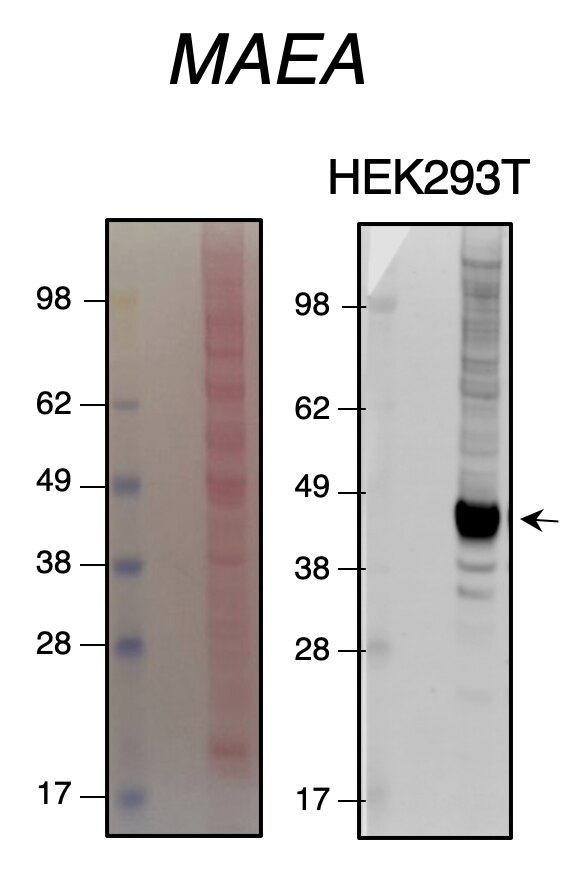 |
